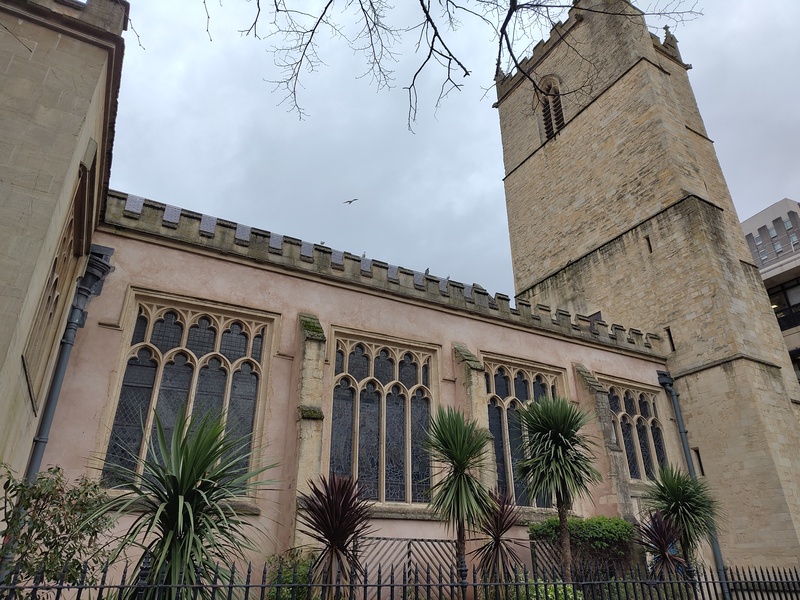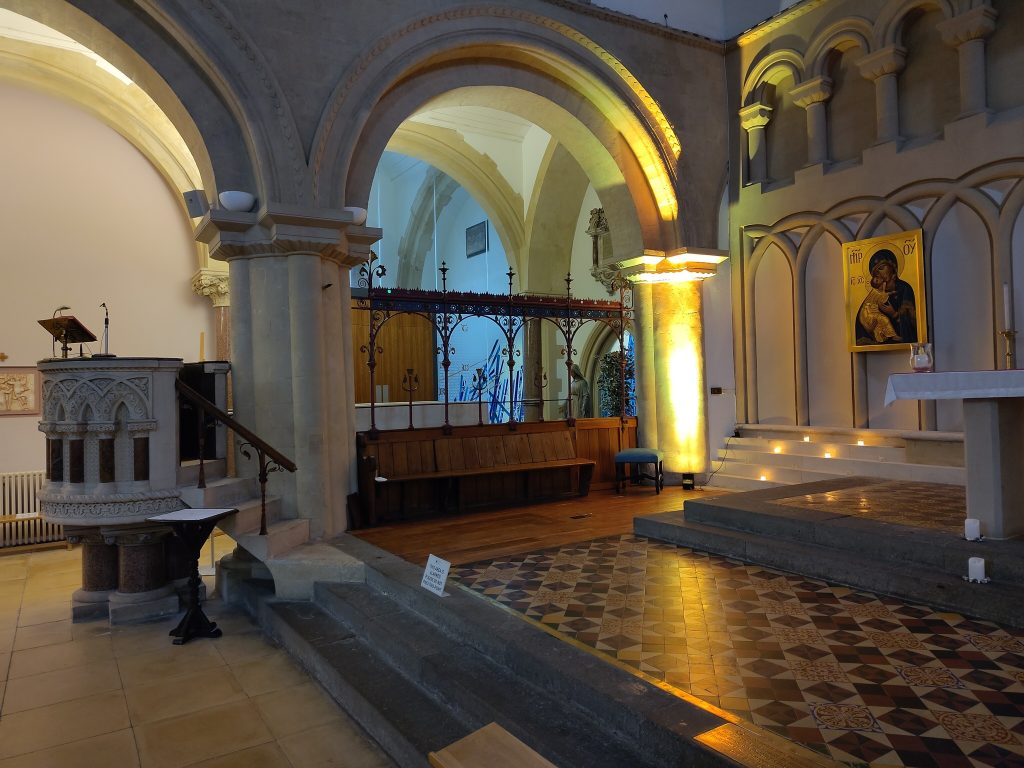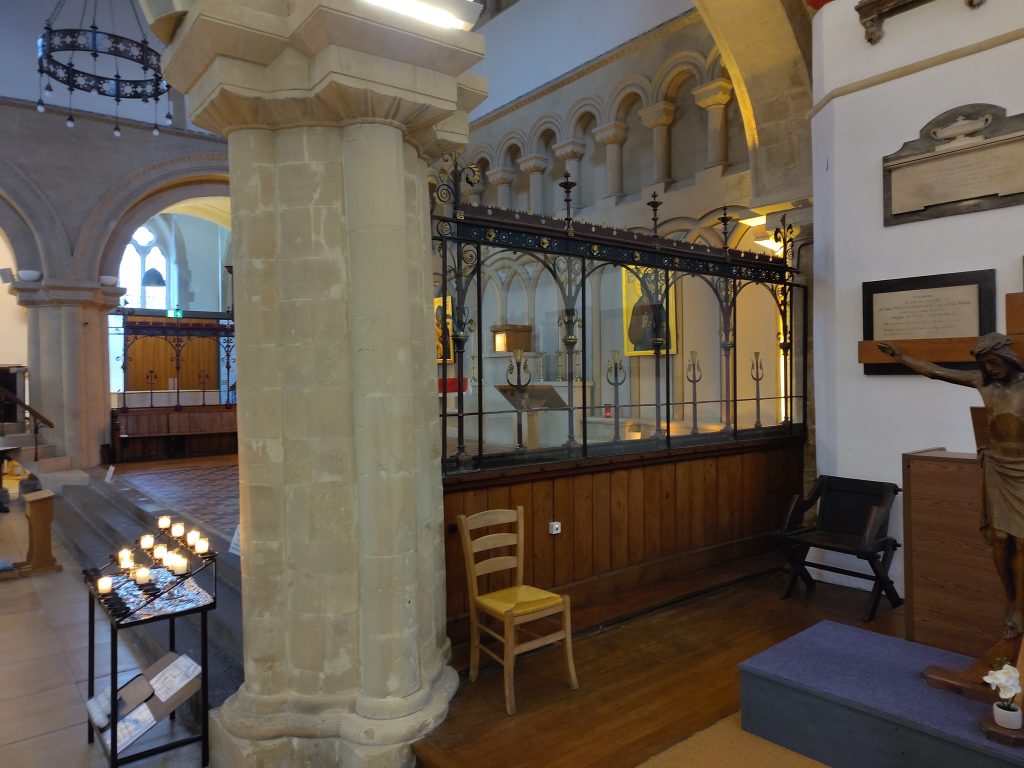This is a work in progress – posted before it is complete to share some of the information I have.
Robert Harden Champion, my Great-great-grandfather, was born at Berrow in January 1845, eldest son of James Harden Champion (1821-1895) and Jane Hawkings (1820-1884). He married Ellen Horseman (1845-1926) at St Barnabas, Bristol in 1868, and they had 7 children, including my Great Grandmother, Minnie Cowles Champion (1875-1947).
Family
Parents
Robert’s father, James Harden Champion, was a farmer (more to come but he does receive a brief mention in Demographics and Mass Migration)
Siblings
(more to come here)
Wife and children
Robert married Ellen Horsman (1846-1926) on 26th December 1868 at St Barnabas Church in Bristol. He was an accountant, aged 24, living at 17, William Street (there are 2 in Bristol, research needed to find which one). Neither her occupation nor her father are shown. She was living at Rodney House, Cheltenham Road, in the Parish of St Andrew, although, from later Census records she came from Winterbourne.

Their children were (to be expanded)
Unrelated Bristol Champions
As far as I can tell there is no connection to
- William Champion (1709–1789) Brass maker
- Richard Champion (1743–1791) – a Bristol merchant
even though both were also based in Bristol.
Confectioner
Although Bristol Archives have a film about Champion Cheese, he seems to have been primarily a confectioner
(to be expanded to have more about…
the “Champion” confectionery cutting machine
Print of the factory of Champion Davis & Co., Manufacturing Confectioners
Legacy
Robert died at The Inns of Court Hotel, in Holborn, London on 22nd March 1895 aged 51. He may have been there on business as the Inns of Court area contains many lawyers. His probate record shows him as “of Lewins Mead and of The Grange, Tyndall’s Park, both in Bristol”
Funeral
His funeral was held on the 26th March 1895, and was described in the Western Daily Press of 27th March 1895.
Funeral of the Late Mr R. Champion
Yesterday afternoon, the large and representative assembly in St. James’s Church, where the first portion of the burial service for the late Mr Robert Champion was read, testified to the esteem in which the deceased gentleman had been held, as not only were there those immediately concerned with the parish present, but also a great many leading citizens from different parts of Bristol. On all hands it was plain. from the remarks made, that there were none but kindly remembrances, and the poor mourned the loss of one who had been to them a true friend.
The remains of the deceased were conveyed from London on Monday night, and were taken to The Grange, Woodland Road, his late residence. The funeral cortège consisted of a funeral car and four, and eight carriages and pairs, followed by the carriage of the deceased, and a number of others containing friends of the family. In the first carriage were Rev. E.F. Neep (vicar of St. James’s), Dr Atchley, Mr J.B. Bramble, Mr E.J. Richards; second carriage, Mrs Champion (widow), Mr H.R. Champion (son), Mr J.H. Champion, Miss Annie Champion; third carriage, Miss Kate Champion, Miss Minnie Champion, Mr Edgar Champion, Miss C. Champion; fourth carriage, Mr S. H. Champion, Mrs Champion, Mr W. Champion, Mrs Champion; fifth carriage, Mr F. Champion, Mrs Champion, Mr S. Creed, Mrs Creed; sixth carriage, Mr C.B. House, Mrs House, Miss Baker, Mr E. Champion; seventh carriage, Mr J.H. Lockley, Mr George E. Davies (deceased’s partner), Mr F.S. Bolt, Mr S. Morny; eighth carriage, Mrs Gillett, Mrs Davies, Mr Glanville; ninth carriage, four servants.
Among those present in the church were the Mayor (Mr. R.H. Symes), and the following members of the Corporation: – Aldermen J.W.S.Dix, F.F.Fox, Cope-Proctor, and C.J.C. Pritchard; Messrs Charles Wills, J.F. Eberle, E.T. Lewis, T.J. Coe, C.Newth, Fenwick Richards, A. Marshall, Arthur Backer, H.W. Carter, H.W.K. Wait, J. Coulthard. Amongst others were Messrs D. Travers Burges (town clerk), T.H. Yabbicom (borough engineer), Lewis Fry, J.W. Hall, J. Almond, H. Riseley, R.W. Ashley, W.G. Vowles, W.C.H. Cross, A.B. Nelson, Michael Clark, J.B. Pinnock, R. Dugdale, J.J. Simpson, W. Jones, J.W. Kinnersley, J.J. Justice, W.B. Bigg, W. Jennings, W.H. Skinner (churchwarden of St. Mary-le-Port). Stokes Croft and North Street Ratepayers’ Association was represented by Messrs G. Standerwick (chairman), R.H. Hatton, S.G. Turner and F. Calder. There were also present the Revs. T.J. Weight, F.H.W. Taylor, A.P. Neele, P.A. Phelps, Dr. Millar NIcholson, and W.C. Prideaux; Messers W. Cottlrell, F.W. Tricks, S. Gane, W.H. Gange, G. Daltry, F. Cordeax, D. Macpherson, W. Stone, S. Alsop, H.J. Spear, Arthur Lee, H. Alsop, E.E. Hobbs, G.H. Rankin, J.T. Wright, G. Wyatt, G. Ingham, S.R. Long, T. Millard, H.C. Newick, H.C. Owen, and M. Reynolds. A large number of clerks and others in the employ of the deceased’s firm were in the church.
Before the arrival of the funeral cortège Mr.G.H. Riseley, organist of the church, played Chopin’s Funeral March, and “O rest in the Lord” and “He that shall endure to the end” from Mendelssohn’s “Ellijah.”
When the mourning party reached the south-west entrance they were met by the vicar (the Rev. E.F. Neep), the curate (the Rev. E.H. Cogswell), and the Rev. G.J. Saywell, with the surpliced choir. As the coffin, covered with beautiful wreaths, was borne up the centre of the nave the vicar repeated the opening sentences of the Burial Service. In the procession Mr.J.H. Lockley and Mr. S.G. Moxey, bearing wands with crape attached, represented the vestry. Mr. Horace Chilton, the vestry clerk, who is in London, on the Haymarket case, was represented by Mr Ricketts his managing clerk. The 90th Psalm was read by the Rev. E.H. Cogswell, and the Vicar read the lesson; after which the hymn “There is a blessed home” was sung. The Vicar asked that the congregation would pray personally that deep consolation, now so needed, might be afforded to the dear wife and children of their beloved and departed one.
As the coffin was borne out of the church Mr. Riseley played Handel’s Dead March in “Saul” and then the final voluntary Beethoven’s “Funeral March”.
The interment took place at Anro’s Vale Cemetery, and as the mournful procession passed through the city there were many spectators at different points. Several buildings in St. James’s were partially closed as a mark of respect to the deceased.
A large number of wreaths, crosses, anchors,&c, were placed on the car and coffin. These had been sent by members of the family and private friends; also from travellers and clerks in the employ of Messrs Champion and Co. the employees at the works, the clergy and aldermen of St. James’s, the organist and choir of the church, the teachers and scholars of St. James’s School, and the Bristol North Unionist Club.
The remains were placed in an elm shell and outer oak case with brass fittings. The plate bore the inscription:-
Robert Champion Entered into rest 22 March, 1895, Aged 50 years.
The funeral was conducted by Mr Chandler, of Bridge Street and White Ladies Road.
At a committee meeting of the Stokes Croft and North Street Ratepayers’ Association the following resolution was passed unanimously:- “That the committee of the Stokes Croft and North Street Ratepayers’ Association have heard with much regret of the death of Mr Robert Champion, who was an honorary member of this association, and that the honorary secretary be requested to convey to Mrs. Champion their sincere sympathy with her in her bereavement”
At a meeting of the committee of the St. James’s Liberal Association, held at the Liberal Club, Corn Street, last night, the following resolution was passed unanimously: “This meeting of the St. James’s Liberal Committee deeply deplores the sudden and untimely death of the late Mr R. Champion, and desires the secretary to convey to the widow and family its sympathy with them in their sad bereavement”.
Chancel screen at St James Priory, Bristol
St James Priory claims to be the oldest building in Bristol which is still standing, having been established as a Benedictine monastery in 1129.

In 1896 Robert’s widow approached the Churchwardens of St James to offer to pay for a Chancel Screen in his memory, and their correspondence with Arthur Becher Ellicott Vicar General in Spirituals of of the right Reverend Charles John by divine permission Lord Bishop of Gloucester and Bristol.
In 1896 the Bishop of Gloucester and Bristol was Charles John Ellicot, who had a son, Arthur who he appears to have appointed as his deputy.
The churchwardens, Samuel George Moxy and Edwin Thomas Lewis wrote the following document, which is held in the Bristol Archives as P/St J/CH W/19(a)
To the worshipful Arthur Becher Ellicot M A Vicar General in Spirituals of the right Reverend Charles John by divine permission Lord Bishop of Gloucester and Bristol and of his Episcopal consistory court of Bristol Official Principal lawfully constituted
The humble petition of Samuel George Moxy and Edwin Thomas Lewis the churchwardens of the Parish of St James in the city of Bristol
ShewethThat at a meeting of the Vestry of the said Parish of St James held on the 19th day of February 1896 the Vicar laid before the members of the Vestry and they approved a plan for a proposed Chancel Screen which Mrs Champion had offered for the purpose of being put up in the Parish Church in memory of her late husband Robert Champion Esquire a Parishioner and former churchwarden of said Parish
That the said plan and and an extract from the minutes of the Vestry accompany this Petition
That the estimated cost of the said screen is One hundred pounds
Your petitioners humbly pray for a Facility to enable them to erect the said screen in accordance with the said plan
S G Moxey
Bristol Archives
Churchwardens
E T Lewis
Citation to faculty for chancel screen in memory of Robert Champion, 1896 Mar 20
https://archives.bristol.gov.uk/records/P.St_J/ChW/19c
(More correspondence extracts to come)
The resulting Chancel Screens can be seen at St James Priory


The base of the chancel screens is of wood, with metal upper parts and they separate the area reserved for the clergy from the rest of the church.
Beautiful chancel screens indeed!